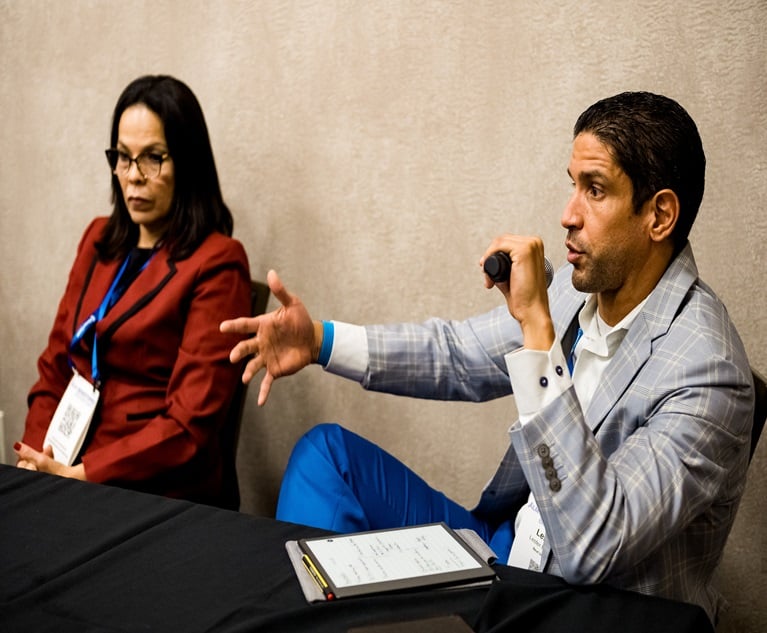What's the secret for achieving sales success?
|At Performance BasedResults, we interviewed 400 highlyexperienced business-to-business sales professionals andidentified eight qualities you need to look for in coaching acurrent sales rep or hiring a new candidate, to achievemaximum sales results.
|Here's the list:
|1. Be persistent in sales without being pushy
I call it creative persistence. There's a fineline between persistence and pushiness, and a smart salesprofessional knows how to toe that line.
|When good salespeople meet an obstacle — unreturnedphone calls, no response to emails or texts — they don't giveup. But they don't make pests of themselves, either. Such a personwill find ways to reconnect before that opportunity withersaway.
|Related: 18 ways to lose a sale
|It's not just a matter of leaving call after call in hiscontact's voicemail. In order to connect, he'll try new tacticssuch as engaging the “gatekeeper,” the executive assistant ora fellow sales rep within the organization. He mayeven show up in person at unconventional times during businesshours — like super early, before work starts, or right atclosing time — or even send a text on a Saturdaymorning.
|When great salespeople reach a salesstall, they approach the situation from a new angle. Forexample, one salesperson was trying to reach an organization's VPof sales for weeks, with no response. So he bought some greennotepad paper, took out his Sharpie, and made it to look justlike a $100 bill and wrote a note to the VPreading, “Let's turn this into real money for you and yoursales team!” He crumpled it up, threw it into anoversized envelope, and mailed it to him.
|The client got a laugh and actually called him back that day.They set up a one-on-one business meeting, got anexcellent dialogue going — and in little time, he won theaccount. For achieving sales success — be creativelypersistent.
|Related: 10 sales behaviors that prospectshate
|
Passionate salespeople, when achieving salessuccess, create their own opportunities instead of waitingaround for them. (Photo: iStock)
|2. Be passionate about what you're selling
Persistence and passion typically go hand in hand. A goodsalesperson is passionate — that is, he truly believes in hissolution. He's hungry, motivated and competitive.
|Related: 65 motivational quotes to ignite your insurancesales
|This sales rep is a doer, not just a talker. He doesn't blamethe current economic climate, or a competitor's lower pricing, orwaste time whining about possible weaknesses in his productcompared to the competition.
|He's got great ideas, and they're measurable by the number andquality of his activities. Passionate salespeople, when achievingsales success, create their own opportunities instead ofwaiting around for them!
||
Good salespeople are always looking to develop new businessrelationships, not waiting until their current well runs dry. (Photo: iStock)
|3. Build new business relationships
The key is for salespeople to actively prospect newbusiness relationships rather than limiting their sales efforts toa dwindling customer base. There's a fine line to know when tonurture a present client or seek out new business.
|Leveraging and strengthening an existing customer base isimportant, to be sure, but it's all too easy to become complacentand keep calling on the same customers.
|Related: 7 phases of the perfect clientfunnel
|Sometimes the relationship has run its course. In today'sever-changing business climate, a salesperson's timingmight be off. A once-promising customer may now be indire straits, possibly due to mergers and downsizing. He'sbetter off investing his time and efforts on fresh newopportunities. Good salespeople are always looking to develop newbusiness relationships, not waiting until their current well runsdry.
|
Successful salespeople don't go into a call or meetingwithout conducting research in advance and developing a strategy.(Photo: iStock)
|4. Do your research before the call
Great sales people always bring value on every call.They research, plan and strategize their key accounts.Many sales reps, during a sales call, have a tendency tooverwhelm a prospect by reciting sales capabilitiesthat may (or may not) have any relevance towhat the customer is looking for. I refer to this techniqueas “show up and throw up.” News Flash: It doesn'twork.
|Related: 5 keys to prospecting effectively
|Up to 50 percent of the outcome of a major sales call isdetermined before even one word is exchanged. Goodsalespeople, when achieving sales success, arethinking about multiple plans. In fact, they've already figured outPlans A, B and C before they even walk in the door. They've donetheir homework and are armed with knowledge to offset anypossible sales obstacle.
|Googling the customer's company or checking out its website is agood start, but great salespeople go further. There aremany ways to obtain information about your prospect and theprospect's company — LinkedIn, Twitter, Facebook, company blogs,press releases, financial statements and even a company's YouTubechannel — all of these sources can provide additionalinformation about industry trends, insider information, news ofcompetitive threats, internal issues, and even your prospect'spersonal goals and interests.
|
Even if a salesperson thinks she's got it made with aparticular account, if she suddenly loses this businessrelationship, she'll find herself starting from scratch. (Photo: Thinkstock)
|5. Develop new relationships in established accounts
When a salesperson wins an account and develops good rapportwith a buyer, he or she tends to gravitate toward thatrelationship, becoming protective of it. But when he does, he mightfall into the trap of being too cautious. He may fear that if hetries to build new relationships, he'll step on his contact's toesor offend him some other way.
|Related: 7 steps for keeping business after your contactleaves
|The sales rep may think, “This person will help open doorsfor me.” But when his contact says, “Oh, you don't needto contact anyone here but me,” that's a red flag signalingthat he does not have a good relationship to begin with.
|Relationships can turn on a dime. Even if a sales rep thinkshe's got it made with a particular account, if he suddenly losesthis business relationship, he'll find himself starting fromscratch.
|Most contacts in an established relationship will introduce youto others in their organization, as long as you appeal to their“WIIFM.” Find out what motivates them. Is it looking good, makingtheir job easier, minimizing risks, or helping them be moresuccessful? Address what's important to them and they will gladlyopen doors for you.
|
A great salesperson needs to show genuineinterest and listen. (Photo: Thinkstock)
|6. Ask the right questions to uncover your prospect'sneeds
Most salespeople have the best intentions, but without realizingit, they're often doing more talking than listening. It's importantto realize that asking and listening go hand-in-hand — a greatsales rep needs to show genuine interest andlisten. In one of my most popular sales trainingworkshops, Questions ThatSell, the most crucial concept I try to getacross is that asking the right questions allows you toqualify if there actually is an opportunity topursue. Your job is to know:
- How pressing is the prospect's need?
- Who is involved?
- How are decisions made?
- What's the unique criteria your prospect looks for in a vendorrelationship?
- Is there a sense of urgency?
- What are the underlying motivations?
- What kind of budget do they have to invest with you?
Related: Want useful answers from your clients? Ask betterquestions
|
Good salespeople thrive on selling value because theadditional investment in choosing a premium service fully outweighsthe potential cost of doing business with a cheaper but inferioralternative. (Photo: iStock)
|7. Sell your customers on value, not price
What if a good salesperson takes pride in his premium product orservice, only to be told his price is too high? Not necessarily aproblem if he's already asked great questions of all the rightpeople in the organization and done his homework. By then, thesalesperson understands his customer's needs and issues, and wherethe customer wants to go.
|Related: How to sell value rather thanprice
|Because the sales rep understands, he's easily able to justifywhy the customer needs to make that initial investment in the rep'ssolution over competitive choices. Sure, the customer can pickother options, but there's always the implication that if he wereto do so, the risk would be too great.
|Let's say the customer went with a lower-priced computer systemof lower quality. A glitch in the customer's computer system causesit to crash, bringing everything in the company to a standstill forthe rest of the day. That could cost the customer thousands ofdollars, easily wiping out what he saved when he bought that cheapsystem.
|Or, let's say a delivery to the customer's customer was a daylate. That'll not only cost the customer big bucks, it could costthem a client! Bottom line is that customers will spend more moneyrather than risk their reputations or their jobs.
|Good salespeople thrive on selling value because the additionalinvestment in choosing a premium service fully outweighs thepotential cost of doing business with a cheaper but inferioralternative.
|
For achieving sales success, whatever it takes for thesales rep to encourage customers to continue the sales process isparamount. (Photo: iStock)
|8. Get customers to commit
Sales commitment is an important goal whensalespeople are trying to achieve some form of closure,some kind of outcome to each sales call. Even if the salespersondoesn't get an agreement on an order right away, because multiplesteps are required. That's okay.
|Related: Why the 'hard close' isn't working
|This salesperson knows he won't be satisfied with just leavingsome literature and promising a follow-up call. He always has apurpose, a call-to-action. It could be as simple as the sales repscheduling a follow-up meeting with other parties, or anappointment to return to demonstrate a product or service to thecustomer, or bringing the customer and his boss to visit andevaluate the salesperson's facility.
|For achieving sales success, whatever it takes for thesales rep to encourage customers to continue the sales process isparamount. By getting them to invest their time and resources, theydemonstrate a willingness to keep the sale moving forward.
|Related: 3 different closing tactics to help you seal thedeal
Want to continue reading?
Become a Free PropertyCasualty360 Digital Reader
Your access to unlimited PropertyCasualty360 content isn’t changing.
Once you are an ALM digital member, you’ll receive:
- All PropertyCasualty360.com news coverage, best practices, and in-depth analysis.
- Educational webcasts, resources from industry leaders, and informative newsletters.
- Other award-winning websites including BenefitsPRO.com and ThinkAdvisor.com.
Already have an account? Sign In
© 2024 ALM Global, LLC, All Rights Reserved. Request academic re-use from www.copyright.com. All other uses, submit a request to [email protected]. For more information visit Asset & Logo Licensing.








